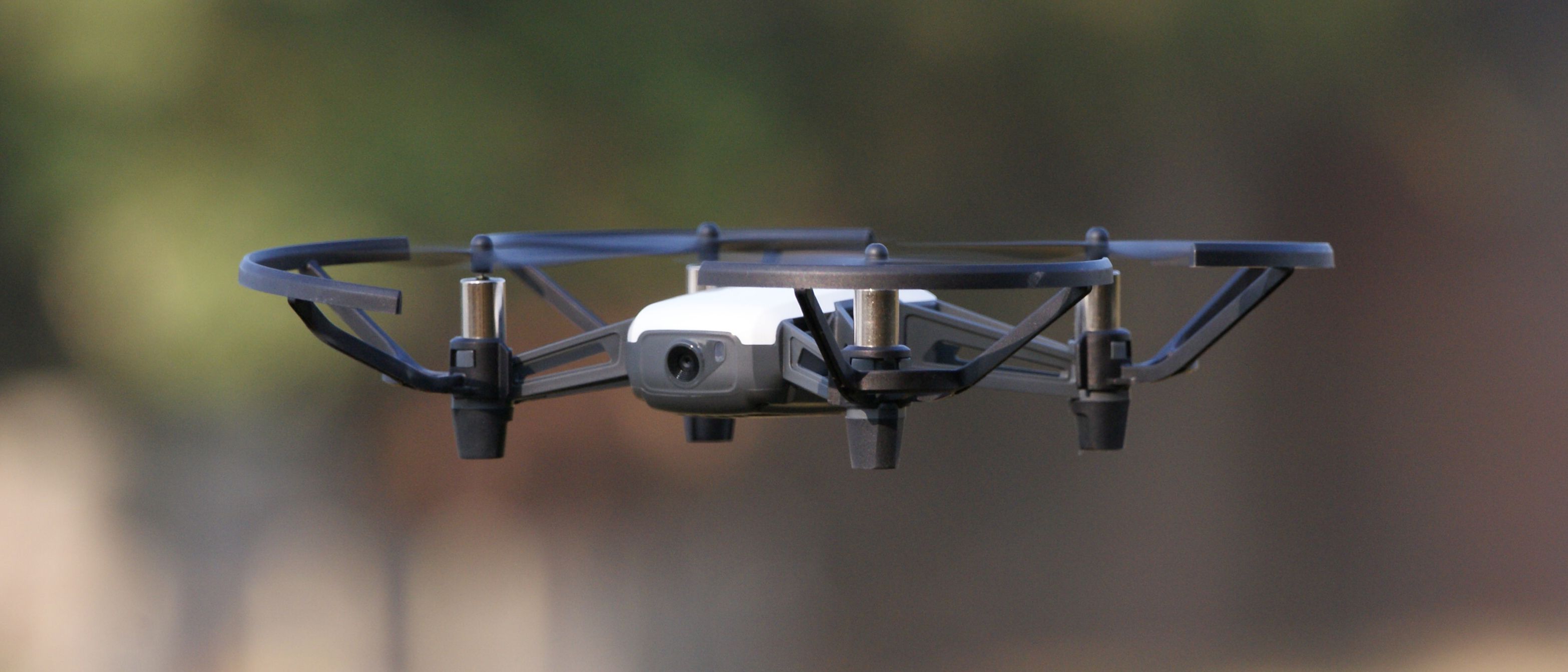TechRadar Verdict
The Tello flies beautifully but a limited range and inability to deal with wind restrict its aerial capabilities. Its video camera isn't great, but decent battery life and a simple app make it appealing as a first drone.
Pros
- +
Responsive flight controls
- +
Good battery life
- +
Lightweight, compact build
Cons
- -
Choppy video
- -
No stability in wind
- -
Low control range
Why you can trust TechRadar
Editor's Note
• Original review date: September 2020
• Officially out of stock but available online
• Launch price: $99 / £99 / AU$169
• Official price now: $99 / £105 / AU$169
Update: March 2024. When it landed in 2018, the Ryze Tello was a tempting proposition: a bargain drone designed with the help of DJI that’s easy to pilot using your smartphone. While it’s certainly not perfect – especially not in windy conditions – the Tello remains our favourite budget beginner drone today. Thanks to its tiny design and simple interface, it’s still a great choice for pilots who are learning the ropes of drone flight. It doesn’t win any prizes for video quality and is easily blown off course, but it’s hard to critique too much at this price point. Officially out of stock in many regions, you can still pick up the Tello from a number of online retailers. One option is to purchase the drone alone, but we’d suggest looking out for the Boost Combo. In our experience, this is more likely to be discounted in seasonal sales. It also goes some way to addressing the Tello’s short flight time, bundling in three batteries and a charging hub.

The Ryze Tello is the result of a collaboration between leading consumer drone maker DJI and fellow Chinese start-up Ryze. A simple, lightweight and affordable quadcopter, it's clearly pitched at newcomers to the hobby.
Despite its budget-friendly price, it comes with an onboard nose-mounted camera that's capable of capturing 5MP photos and streaming 720p HD video. You also get a reasonable-sounding 13 minutes of flight time per fully charged battery and stability sensors to (theoretically, at least) keep it from drifting off into walls, shrubberies and neighbours’ gardens.
In other words, it hasn’t been stripped right back to the bone to keep costs low. Even the plastic body, while we wouldn’t call it premium by any means, feels tough enough to survive a bit of rough and tumble.
- These are the best drones you can buy right now
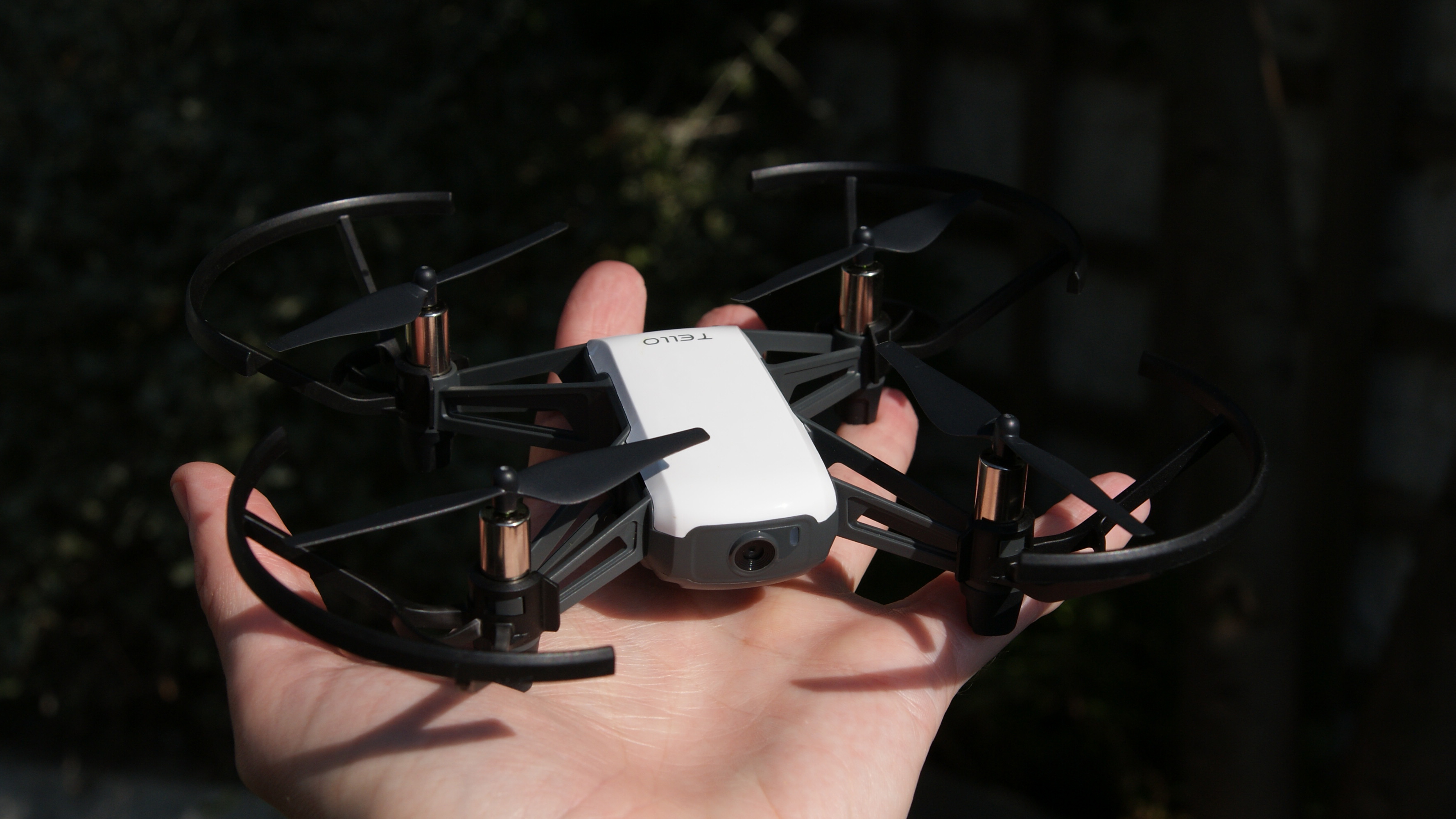
Flyable via a Wi-Fi-equipped smartphone running the Tello app, the drone has a theoretical control range of 100m, maximum altitude of 30m and maximum speed of 8m/s. The app comes with automatic take-off and landing controls, plus an on-screen twin-stick setup that feels rewardingly responsive.
The Ryze Tello is a fun drone to fly, particularly if you’re outside with room to spare. It zips along at an enjoyably rapid chop and responds nimbly to the on-screen controls, twisting and turning in the air with surprising grace.
Sign up for breaking news, reviews, opinion, top tech deals, and more.
We should add that all of the above only applies when the weather is playing nice. On a breezy day the 80g drone gets swept away by the slightest gust, and it struggles to move against the wind too, so we wouldn’t recommend flying it in anything but dead calm.
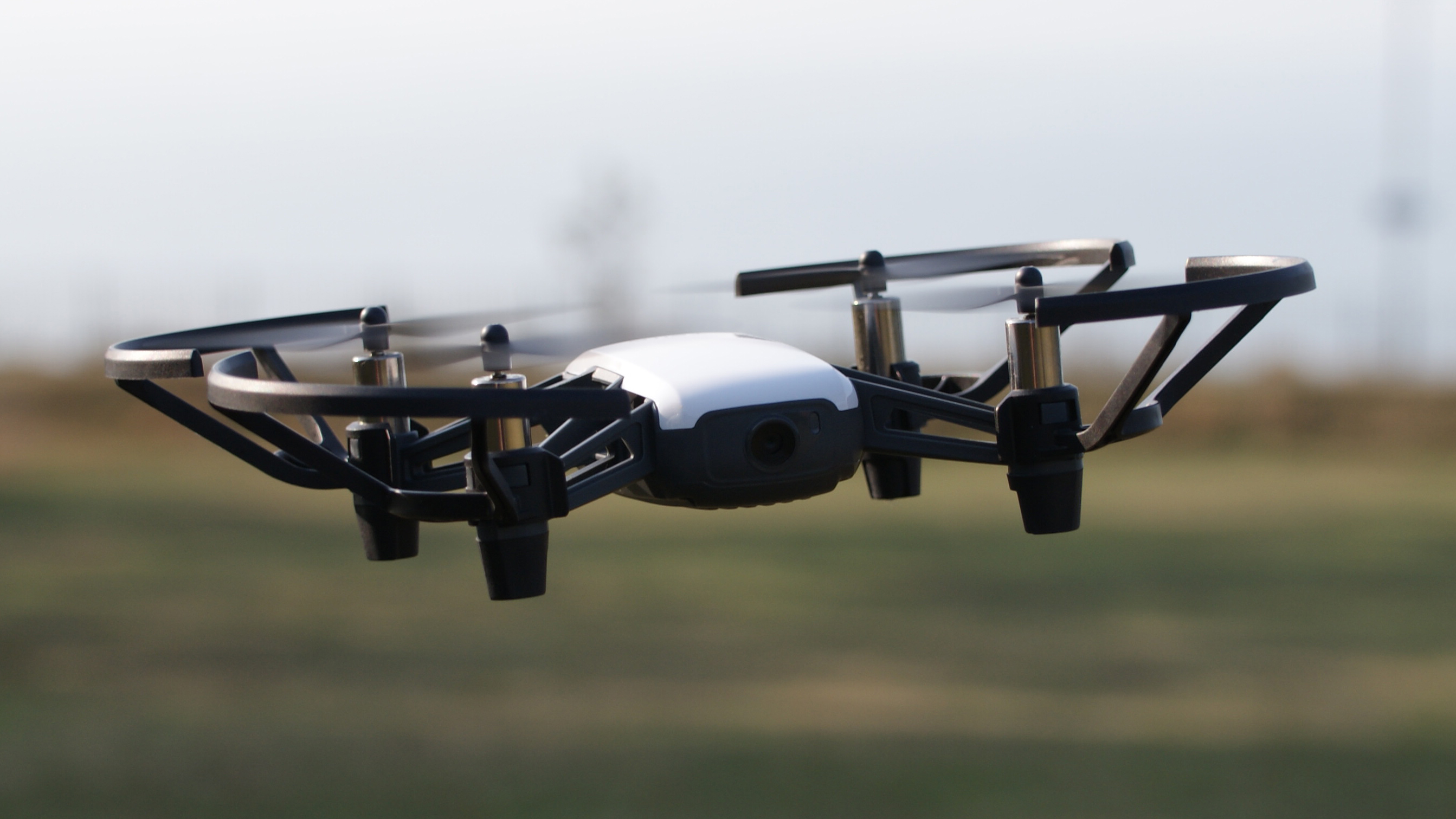
If you do decide to take it out in blustery conditions, make sure you give yourself plenty of space – otherwise you risk it crashing unceremoniously into a tree or being carried off and lost entirely.
Ryze cites the Wi-Fi range as “up to 100m”, but in practice you’ll likely never see it approach that. The maximum range we could control the drone at was closer to 30-40m, and there are limits on its altitude too: Ryze suggests it can reach heights of 30m, but it seemed more like 10m to us.
While this range might sound a little restrictive, we think it’s acceptable for a basic budget drone with a simple, forward-facing camera – you’re not going to be using the Tello to capture sweeping aerial landscape photos, but close-range selfies and group shots.
- Read our in-depth DJI Mavic Mini review
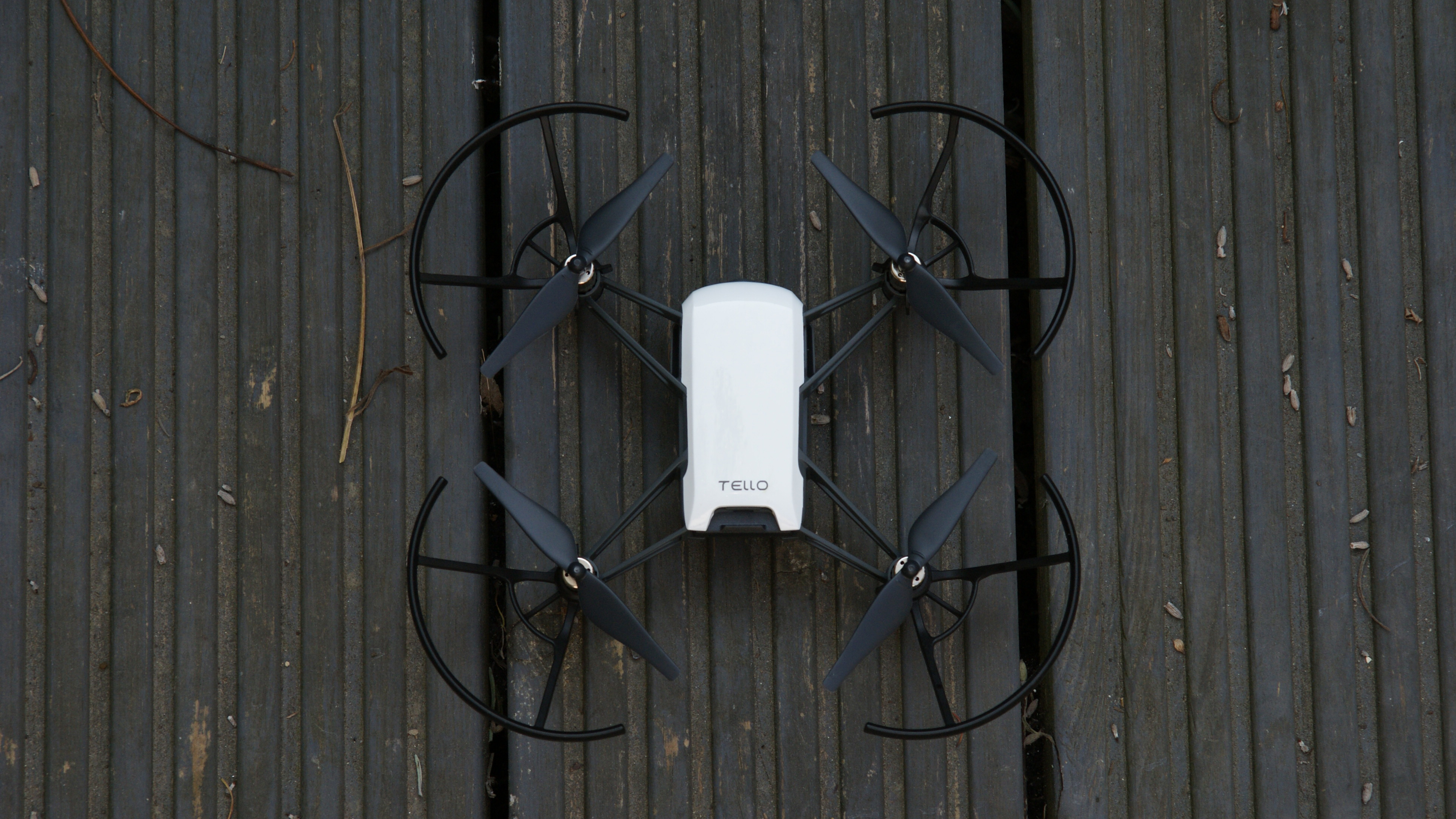
When flying on a calm day or indoors (some prop guards are included for the latter; you may as well keep them attached for outdoor flights too), a pair of downward-facing sensors keep the Tello nice and steady. Take your hands off the controls and it will hover in place rather than drift around. This system is light-based, so only works in bright conditions.
The sensors power one of the Tello’s flight tricks: the ability to hold out your hand and have the drone land on your outstretched palm (do watch your fingers until the props power down, though). You can also use “Throw & Go” to launch the drone: turn the power on, then toss it upwards and away from you in the air, whereupon it’ll engage its rotors and hover in place.
In addition to manual flight controls, a handful of automated modes can be used to perform tricks and capture interesting videos: 360-degree rotations, 'Up & Away' (which flies – yes – up and away from you while facing you) and more. The most interesting is the 8D flips, which makes the drone perform precise flip-over tricks that mirror how you swipe your finger across the screen.
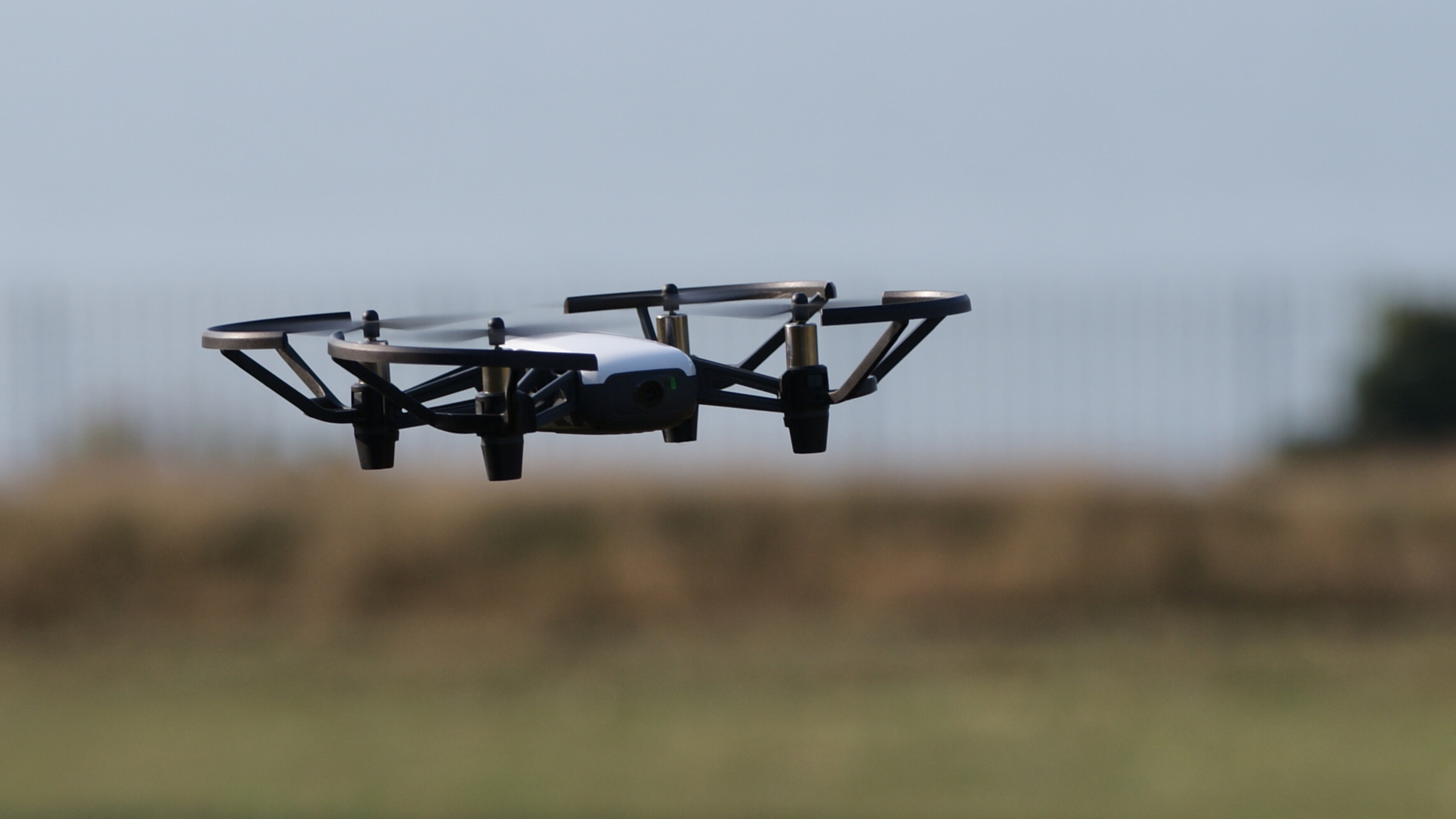
The Tello app is refreshingly simple, with clearly labelled controls and a limited (but not restrictive) set of options. There’s an on-screen battery indicator while flying, plus a built-in warning system that kicks in when power is low, to help ensure you don’t lose the Tello due to it abruptly running out of juice.
Battery life is decent, however: you can get as much as 13 minutes of flight time out of one charge. This does make buying multiple batteries necessary if you’re planning on long sessions, but given the toy-like nature of the Tello we think 13 minutes is perfectly acceptable. One option would be to buy the “Boost Combo” package, which includes three batteries and an external charger able to accommodate all of them at once.
Finally, we should mention the image quality of the built-in camera. It’s not wonderful, in all honestly, lacking dynamic range and, in the case of videos, often subject to extremely noticeable compression artifacts. The method of storage doesn’t help: because videos aren’t stored locally on the drone but beamed directly to your phone, anytime the Wi-Fi connection drops in quality you’ll run into frame rate issues: fly the drone away from you and at some point the video will start stuttering.
Should I buy the Ryze Tello?
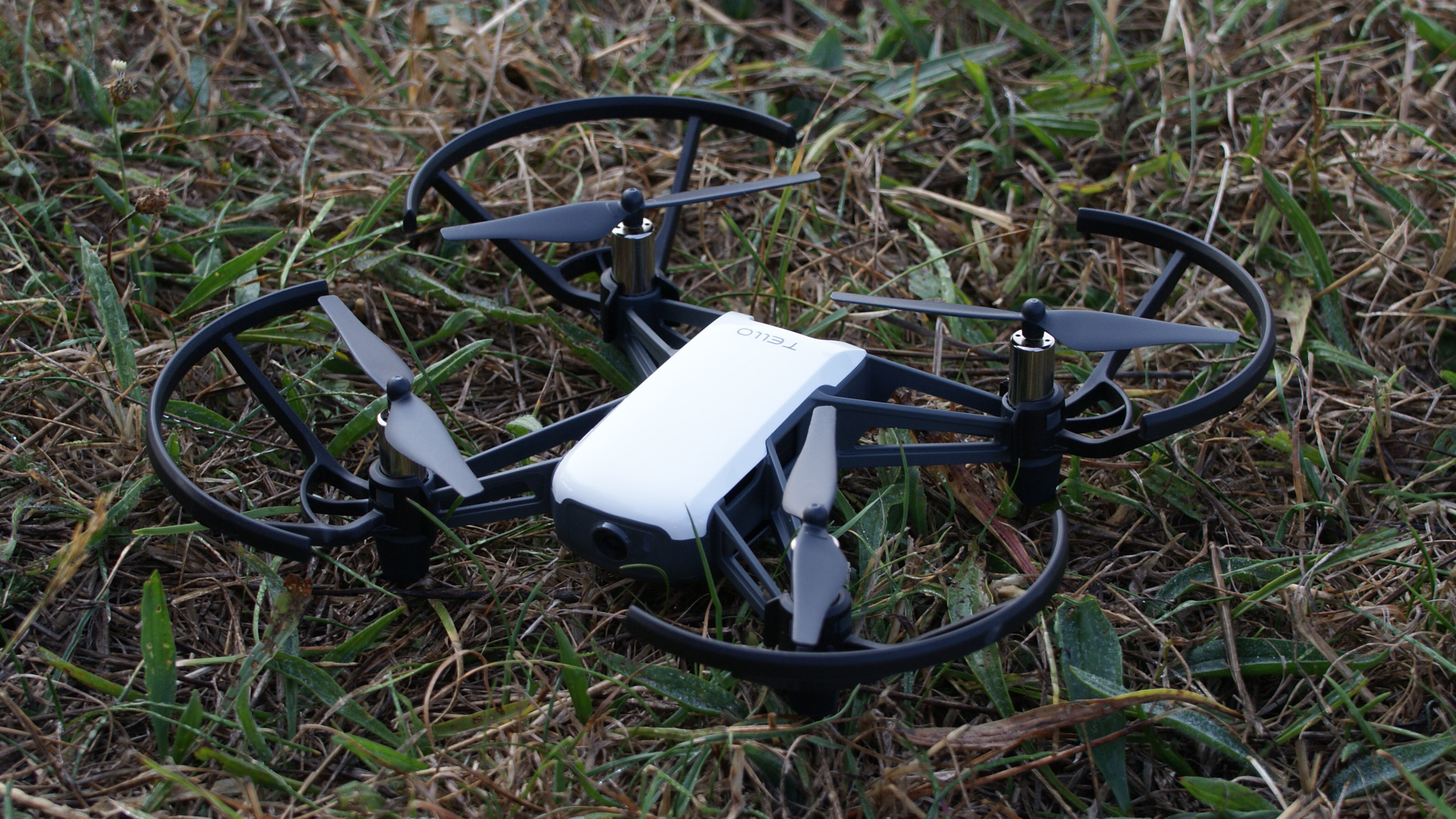
Buy it if...
You want to learn the basics
With its simple app and responsive controls, the Tello is a great way to master standard quadcopter controls, flight maneuvers and take-offs and landings.
You want a travel drone
The Tello is tiny and weighs next to nothing, so it’s easy to carry around all day. And its battery life isn’t bad either.
You’re flying indoors
Rotor guards and stability sensors make this safer and easier to fly in cramped conditions than many cheap drones.
Don't buy it if...
You live somewhere windy
The Tello doesn’t fly well in anything above the slightest breeze, so avoid windy days if you don’t want to risk crashing or losing it.
Video quality is important to you
The choppy, compressed 720p videos are one of the Tello’s weakest points. It stills photos are slightly better though.
You want to fly sky high
The low range and restricted altitude of the Tello mean it can’t fly far from its pilot. If you want to soar above buildings and trees, it’s not the drone for you.
- These are the best DJI drones you can buy right now

Sam has been writing about tech and digital culture for over 20 years, starting off in video games journalism before branching out into the wonderful worlds of consumer electronics, streaming entertainment and photography. Over the years he has written for Wired, Stuff, GQ, T3, Trusted Reviews and PC Zone, and now lives on the Kent coast in the UK – the ideal place for a camera reviewer to ply their trade.
